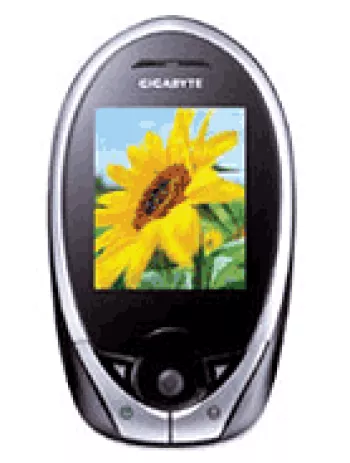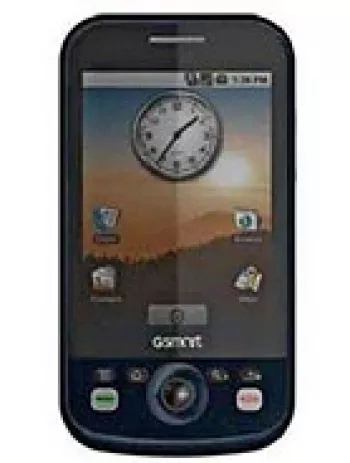
Overview of Gigabyte GSmart MS820
The Gigabyte GSmart MS820 is a compelling device that emerged in the mobile phone market in June 2008 and was officially released in 2009. It falls within the category of smartphones featuring Microsoft Windows Mobile 6.1 Professional, which was a relatively advanced system for its time. Although now discontinued, the device was recognized for its unique proposition of features combined with a touch of elegance and functionality.
Network and Connectivity
Regarding network capabilities, the GSmart MS820 supports GSM and HSPA technologies, allowing it to function across various bands, including the 2G bands (GSM 900/1800/1900) and 3G bands (HSDPA 2100). It offers a data speed capacity of HSPA 7.2/0.384 Mbps, ensuring moderate speed Internet browsing and data communication by the standards of that period.
Design and Build
The phone boasts a sleek design with dimensions of 116 x 59 x 14.1 mm and a weight of 105 grams, making it lightweight and portable for everyday use. The design includes a mini-SIM card slot and presents a comfortable grip with its rounded edges and solid build.
The device comes in a dark gray color, exuding a professional and understated aesthetic. Its body is compact and durable, making it a solid option for users looking for a reliable handset.
Display Features
The GSmart MS820 features a 2.8-inch TFT resistive touchscreen capable of displaying 65K colors. This screen size was relatively standard for phones during its release period. The resolution stands at 480 x 640 pixels, offering approximately 286 pixels per inch (ppi), which ensures decent clarity and sharpness in visual output.
The screen-to-body ratio of the phone is about 35.5%, optimized for both touch navigation and visual clarity, although it may seem modest by today's standards.
Hardware and Performance
The phone is powered by a Marvell PXA270 520MHz processor, aligning with the mid-range processing power in the era of its release. It facilitates smooth operation for basic applications and functions enabled on the Microsoft Windows Mobile platform.
The device is equipped with 128MB of RAM and 256MB of ROM, with storage expandable via a dedicated microSD slot, offering flexibility in terms of memory management and file storage.
Camera Capabilities
The GSmart MS820 is equipped with a 5-megapixel main camera complemented by autofocus and an LED flash, designed to enhance photo-taking capabilities. The camera enables users to capture quality photographs with convenient flash support in low-light environments.
Additionally, the phone features a VGA front-facing camera explicitly included for video calling purposes, catering to the emerging demand for such functionalities during its release period.
Sound and Audio
The device provides an adequate sound system with a loudspeaker for clear sound output. It supports a range of alert types, including vibration, and downloadable polyphonic, MP3, WAV, and WMA ringtones. Notably, it lacks a 3.5mm audio jack, mandating alternative methods, such as Bluetooth, for headphone connectivity.
Communication Features
For wireless connectivity, the GSmart MS820 supports Wi-Fi 802.11b/g, facilitating internet access and network connections critical for mobile work and internet browsing.
Bluetooth 2.0 with A2DP is included for wireless communication with compatible devices. The GPS and A-GPS with the SiRF Star III chipset are provided, augmenting navigational capabilities, making it a versatile tool for users requiring GPS services.
The phone also includes a stereo FM radio with RDS, adding entertainment value for users who enjoy radio broadcasting.
A miniUSB 2.0 port is available for physical connectivity and data transfer, streamlining the process of connecting to other devices or charging.
Additional Features
The device houses an accelerometer sensor, which was a cutting-edge feature at its time of launch, enhancing usability with various applications, particularly gaming.
It also features a WAP 2.0/xHTML browser for basic mobile internet browsing.
Battery Life
The GSmart MS820 is powered by a removable Li-Po 1300 mAh battery capable of providing up to 150 hours of standby time and approximately 4 hours of talk time. Although this may seem limited by today's standards, it was adequate for typical daily use during its active market period.
Conclusion
In conclusion, the Gigabyte GSmart MS820 epitomizes a blend of basic yet effective features catering to the needs of users during the late 2000s. Although it is now discontinued, its array of functionalities, such as the robust camera, GPS capabilities, and Windows Mobile operating system, reflect its relevance and appeal during its operational phase. Priced at about 380 EUR at its launch, the MS820 provided a competitive and attractive option for users seeking a comprehensive mid-range phone well-suited for business and personal use.
Main Features of Gigabyte GSmart MS820
- Network Technology: GSM / HSPA
- Compact Design and Lightweight: 116 x 59 x 14.1 mm, 105 g
- Display: 2.8 inches TFT resistive touchscreen with 480 x 640 pixels resolution
- Operating System: Microsoft Windows Mobile 6.1 Professional
- Processor: Marvell PXA270 520MHz
- Memory: 128MB RAM, 256MB ROM, expandability via microSD
- Main Camera: 5 MP with autofocus and LED flash
- Front Camera: VGA for video calls
- Connectivity: Wi-Fi 802.11b/g, Bluetooth 2.0 with A2DP, GPS and A-GPS
- Additional: Stereo FM radio with RDS and miniUSB 2.0 support
- Battery: Removable Li-Po 1300 mAh with up to 150 hours standby time
- Sensors: Accelerometer for screen orientation
Disadvantages of Gigabyte GSmart MS820
- Discontinued model, no longer receiving official updates or support.
- Uses outdated Microsoft Windows Mobile 6.1 Professional OS.
- Old hardware with Marvell PXA270 520MHz CPU that lacks modern processing power.
- Limited internal memory with only 128MB RAM and 256MB ROM.
- Uses a resistive touchscreen, which is less responsive than modern capacitive screens.
- Low screen-to-body ratio (~35.5%), leading to inefficient display use.
- No 3.5mm headphone jack available for audio.
- Limited battery life with only 1300 mAh capacity.
- Limited 3G support with only HSDPA 2100, restricting network compatibility.
- The VGA front camera is very low resolution for modern standards.
- Relatively high original price of about 380 EUR, considering its features and specifications.


View Also
More Phones
All Rights Reserved +13665 Phones © Mobilawy 2025

























